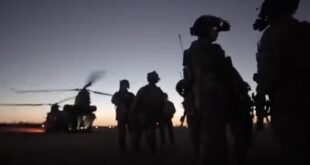COMMENTARY by Susan Katz Keating
After Vietnam, the U.S. government should have learned a powerful lesson that it never must abandon its allies. Clearly, the lesson was ignored.
Several years ago at a conference in Tampa, I asked Gen. Kenneth Tovo a question that was pegged to the Vietnam War, but that resonates today regarding Afghanistan. At the seminar, I noted that the U.S. government abandoned many of our Vietnamese allies to a cruel fate when their enemies seized power. With that in mind, I asked, how can the U.S. keep from being the “love ’em and leave ’em” partner for foreign allies who trust us with their lives?
Fast-forward to the “Willful Blindness” Majority report from the House Foreign Affairs Committee, released on Monday. The report is a damning condemnation of much that occurred during the chaotic, deadly withdrawal of U.S. forces from Afghanistan. One segment in particular jumped out at me; the segment that reminds me of the question I asked Kenneth Tovo, when he was Commanding General of the United States Army Special Operations Command.
That section is so well crafted, so troubling, that it bears a close reading.
Here’s what it says.
~ ~ ~
A Lesson Unlearned: A Pattern of Abandoning America’s Allies
President Biden’s urgency to leave Afghanistan harkens back to his stance at the end of the Vietnam War, while serving as a U.S. senator from Delaware. The parallels between then-Senator Biden’s willingness to abandon America’s South Vietnamese allies and, more recently, his willingness to abandon America’s Afghan allies as president, demonstrate a pattern of callous foreign policy positions and readiness to abandon strategic partners.
The United States’ military’s campaign in Vietnam was winding down when Mr. Biden was sworn in as Delaware’s U.S. senator. On the eve of a fact-finding trip to South Vietnam, freshman Senator Joe Biden made evident no matter what he saw on the ground, he wanted to end all U.S. military aid, stating, “I can’t imagine what could change my mind, unless it were proof of communist reprisals against South Vietnamese after a military collapse. … I question that I would even then.”
Two weeks prior to Saigon’s collapse, Senator Biden advised President Gerald Ford to leave “as quickly as possible,” expressing a willingness to leave to chance the fate of U.S. citizens, military, and locals who supported the U.S.-backed South Vietnamese government.
Following the withdrawal, Senator Biden was resistant to American involvement in Vietnam, including assistance to South Vietnamese refugees of the war. As the Republic of Vietnam collapsed in the spring of 1975, he opposed the approval of funds and efforts by President Ford’s administration to evacuate thousands of South Vietnamese families out of the country. Senator Biden went on to say, “I am not sure I can vote for any amount to put American troops in for one to six months to get the Vietnamese out.”
He later said, “I will vote for any amount for getting the Americans out. I don’t want it mixed with getting the Vietnamese out.”
According to Senator Biden, “The United States has no obligation to evacuate one, or 100,001, South Vietnamese.”

People scrambling to leave Vietnam.
In keeping with his opposition to assist the South Vietnamese, on April 25, 1975, Senator Biden voted to oppose the Vietnam Contingency Act of 1975, which sought to send emergency relief funds to South Vietnam, including to facilitate the evacuation. The act passed the Senate despite his objections. Five days later, Saigon fell to the North Vietnamese, and hundreds of thousands of South Vietnamese who could not escape were eventually sent to reeducation camps to be abused, tortured, or killed.
Nearly five decades later, President Biden unfortunately failed to learn from Vietnam. At the brink of Afghanistan’s collapse, when asked by a reporter if he foresaw any parallels between Vietnam and Afghanistan, President Biden would respond similarly about his moral responsibility for the Afghan people, in particular, women’s rights, stating, “None whatsoever. Zero.”
And his decision to comprehensively withdraw U.S. forces from Afghanistan would, once again, abandon America’s allies — in this instance, to a sweeping reprisal campaign of summary executions, disappearances, and other abuses by the Taliban.
~ ~ ~
Those many years ago in Tampa, people at the session surely had no idea that events in Vietnam would be replayed in Afghanistan. At the time, I thought my question was hypothetical. I expected Gen. Tovo to give me a list of all the lessons learned, and the measures that were put in place to prevent this one portion of history from repeating itself.
To clarify, I did not and do not fault the U.S. military for any part in the chaos in Vietnam and Afghanistan. On the contrary, the military worked desperately to save others. And, as we sadly know, people tragically lost their lives. I blame the Administrations for dereliction of duty.
In retrospect, my question to Gen. Too seems almost academic: How can the U.S. keep from being the “love ’em and leave ’em” partner for foreign allies who trust us with their lives?
The session in Tampa ended before Gen. Tovo had a chance to respond. But the answer, clearly, is this: We haven’t even tried.
Susan Katz Keating is the publisher and editor in chief at Soldier of Fortune.
 Soldier of Fortune Magazine The Journal of Professional Adventurers
Soldier of Fortune Magazine The Journal of Professional Adventurers






